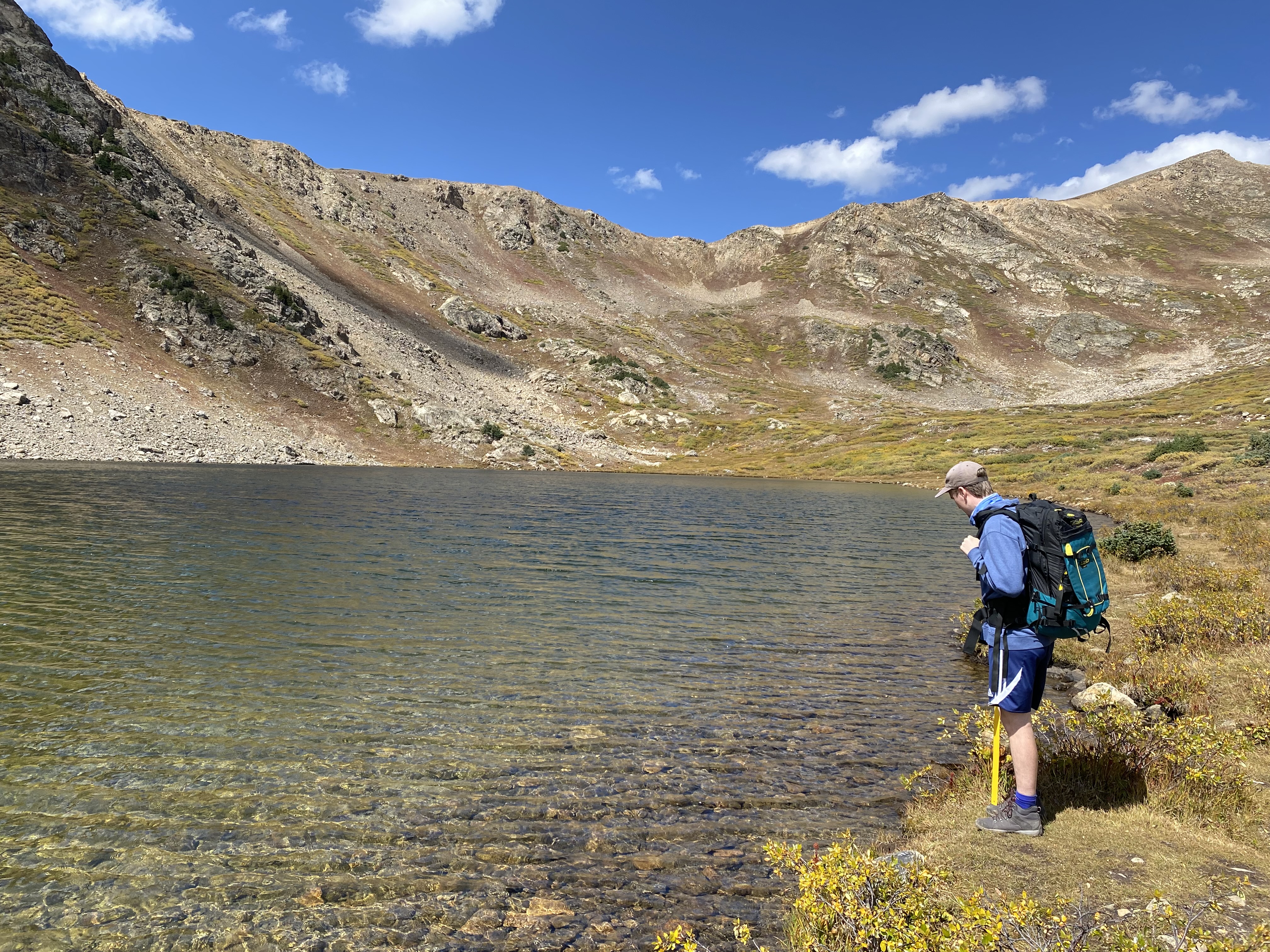The past few years have seen significant impacts on local water resources including streams and rivers. Drought, reduced snowpack, hot temperatures and wildfire have all made their mark in the watershed in recent years, with climate change as a driving force. Many of these factors resulted in significant alterations to both water quantity and quality.
RFC continually strives to stay abreast of changes, implementing monitoring and data collection when necessary. With RFC’s 27-year history and related water expertise, some of these impacts are predictable and monitoring can be planned and implemented proactively. This includes RFC’s Hot Spots for Trout stream temperature monitoring in the summer and anchor ice monitoring in the winter, both of which are influenced by drought conditions.
On other occasions, RFC becomes aware of new concerns as they arise, often with public citizens or partnering organizations helping to raise awareness of changing conditions. In the fall of 2021, after a year of above-average temperatures and drought conditions, local concerned citizens notified RFC of significant algal blooms in alpine lakes within the watershed. RFC water quality staff responded, implementing a round of algal research and sampling to better understand the conditions and potential effects on lakes which are often at the headwaters of local streams and rivers.
A key component of RFC’s ability to adapt and respond to changing conditions is collaboration. RFC’s Hot Spots for Trout program relies on local citizen scientists who assist with collection of temperature data during hot summer months. The recent algae sampling and study was conducted in partnership with The University of Colorado’s Institute of Alpine and Arctic Research, utilizing their expertise to help understand and study these new conditions.
Looking ahead, it seems likely that new concerns and impacts to water resources will arise, especially in light of a changing climate. But just as likely, is RFC’s resolve to identify, study, and respond to these changes as they come.
Alpine Algae Monitoring

RFC works with Dr. Diane McKnight, a limnologist at the Institute of Arctic and Alpine Research at The University of Colorado, regarding the large algal blooms observed in high elevation lakes. Samples are sent to Dr. McKnight and her team for analysis.